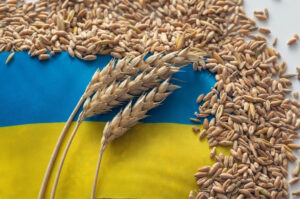
Following the meeting of the coordination platform on Ukrainian grain exports, no decision was made on whether or not to extend the current temporary ban on grain imports to Poland, Hungary, Romania, Slovakia and Bulgaria, which expires on September 15.
This was reported to Interfax-Ukraine on Wednesday after the 9th meeting of the joint coordination platform, chaired by the head of the cabinet of the Vice President of the European Commission Valdis Dombrovskis, Mr. Hager.
According to her, the first part of the meeting was attended by representatives of five member states, Ukraine, the Republic of Moldova and the Commission. “The Commission presented the latest forecasts of the market situation in terms of harvest, trade and prices. Countries were invited to share the latest information. The platform also discussed how to increase storage capacity and reduce border crossing time. Finally, they exchanged views on short-term actions to facilitate trade flows and on ways to support transport,” the EC representative said about the content of the first part of the platform meeting.
According to Garcia, the second part of the meeting, which was attended by representatives of Estonia, Latvia, Lithuania, Greece, Italy and Croatia, was devoted to alternative routes.
“In the context of this meeting, the Commission informed that no decision has yet been made on preventive measures, the phased abolition of which is scheduled for September 15, 2023. In any case, the Platform will continue to meet regularly and monitor grain imports from Ukraine,” the European Commission representative stated.
As you know, in May 2022, the EU decided to temporarily suspend import duties, quotas and trade remedies on Ukrainian exports to the European Union – known as autonomous trade measures – to help alleviate the difficulties faced by Ukrainian producers and exporters after the Russian invasion. At the same time, following logistical problems in Bulgaria, Hungary, Poland, Romania, and Slovakia caused by imports of wheat, corn, rapeseed, and sunflower seeds originating in Ukraine, exceptional and preventive measures on their imports came into force on May 2, 2023, and were extended on June 5.
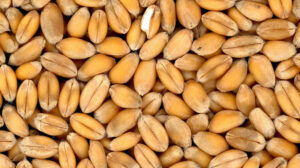
The European Commission may extend for another two months the embargo on imports of Ukrainian grain, including wheat, corn, rapeseed and sunflower seeds, to Poland, Hungary, Romania, Slovakia and Bulgaria.
A source close to the negotiations told Interfax-Ukraine on Wednesday in Brussels.
As you know, a meeting of the coordination platform is taking place in Brussels on Wednesday with the participation of the countries concerned.
“It is proposed to extend the ban on imports of Ukrainian grain for two months. It is not yet known when the official decision will be made,” he said.
At the same time, the deadline for the ban on Ukrainian grain imports expires on September 15.
As you know, in May 2022, the EU decided to suspend import duties, quotas and trade remedies on Ukrainian exports to the European Union – known as autonomous trade measures – to help alleviate the difficulties faced by Ukrainian producers and exporters after the Russian invasion. At the same time, following logistical problems in Bulgaria, Hungary, Poland, Romania, and Slovakia caused by imports of wheat, corn, rapeseed, and sunflower seeds originating in Ukraine, exceptional and preventive measures on their imports came into force on May 2, 2023, and were extended on June 5.
A day earlier, on September 12, European Commissioner for Agriculture Janusz Wojciechowski spoke in the European Parliament about the need to maintain the ban on imports of wheat, corn, rapeseed and sunflower seeds from Ukraine to Bulgaria, Hungary, Poland, Romania and Slovakia. According to him, this decision has proved to be effective and should be extended after September 15 with the simultaneous expansion of the Solidarity Roads for the transit of these Ukrainian products. “We have found a solution that, firstly, stabilized the market in these (five) countries, and, secondly, allowed us to increase transit from 2.9 million tons before the ban from Ukraine to 3.2 million tons after the ban was introduced,” he said.
According to the EC, 44 million tons of agricultural products have already been transported from Ukraine via the road and rail “Solidarity Roads” of these countries, and according to current forecasts for this marketing year 2023-2024, Ukraine needs to export 56 million tons of grain, or 4.7 million tons on average per month. “The Black Sea is blocked, and no one knows if it will be unblocked by Russia. Russia knows what it is doing in this regard, what criminal activities it is conducting, and it is using food as a weapon. But we are able to help Ukraine export these 4.7 million tons by land through the Solidarity Corridors. We just need to improve and expand these corridors,” the European Commissioner emphasized.
Wojciechowski mentioned Baltic ports as new routes: Lithuania, Klaipeda, Riga, and the ports of the Adriatic, as Romania is practically unable to increase transit.
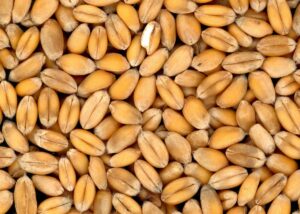
Poland will not allow grain imports from Ukraine after September 15, as the interest of Polish farmers is more important to the country’s government than any EU rules on this issue, said Polish Minister of Agriculture and Rural Development Robert Telusz.
“We know what could have happened if grain (from Ukraine) had arrived in Poland after September 15. Especially since the price of grain is currently low, and the granaries are already full. We know that this is in our interest and we will defend it. That is why I am going to Spain with this message to the summit of agriculture ministers,” the Polish publication farmer.pl quoted him as saying during the National Agricultural Exhibition in Czestochowa last Sunday.
Telusz informed the public that on Monday he will visit Spain, where he will convince the European Union to extend the ban on grain imports from Ukraine to the EU until the end of 2023 after September 15, together with representatives of other frontline countries – Hungary, Bulgaria, Slovakia, and Romania.
“When the war in Ukraine broke out, Polish society, including farmers, became the saviors of the Ukrainian cause. (…) Polish society became a lifesaver. Today in Brussels, we are loudly declaring: a dead rescuer is a bad rescuer. We will not allow the Polish farmer to lose because of arbitrary decisions of officials from Brussels,” said Deputy Minister of Agriculture Krzysztof Ciezora.
According to Janusz Kowalski, the State Secretary of the Ministry of Agriculture, the Polish government has supported Polish farmers to the tune of EUR 3.181 billion, while the amount of financial support from the European Commission is only EUR 63.614 million.
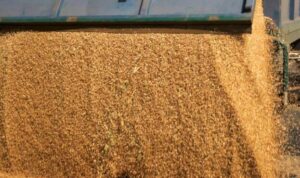
If necessary, Poland will impose a unilateral ban on imports of Ukrainian grain after September 15, while the transit of goods will be maintained, Agriculture Minister Robert Telusz told Polsat News at a press conference on Tuesday.
He denied media reports that a split in the coalition of countries banning Ukrainian grain imports had occurred and that the number of EU member states opposing Poland’s position on extending restrictive measures after September 15 had increased from 13 to 20.
“This is the first time I’ve heard that more countries are against it. I have talked to many ministers from the European Union about this. I see an understanding that we need to build a coalition. We have to build a mechanism. I am convinced that Romania is a member of the coalition,” Telusz was quoted as saying by the Polish publication farmer.pl.
He also said that next week he will hold talks with representatives of Slovakia to determine together “in which direction we will move.”
“At the moment, I have no doubt that there is a coalition,” Telusz assured.
The Polish minister emphasized that keeping the ban on the import of Ukrainian grain only until September 15 is “a political argument to further destabilize the situation in Poland.”
“We will not allow this,” he assured.
The Polish government wants this issue to be resolved “amicably in the European Union, so that there is no need to break down the door.”
“If it is necessary (…) to introduce unilateral bans, we will introduce them, because we are concerned about the interests of farmers (…), and there is no discussion on this topic,” Telusz stated.
Answering a question about possible risks of penalties being imposed on Poland if it violates the rules of the single market, the Minister said that “I don’t want to hear how we, the Poles, are being scared by fines (…)” and added that Poland “will pursue a tough policy in the interests of the Poles.”
Telusz said that Poland is in dialogue with Ukraine, Lithuania, and Latvia to transit grain through Poland.
“We are in dialogue with Ukraine, as well as with Lithuania and Latvia, to use their ports,” he said, and assured that the grain that leaves Poland does not return.
“If we are talking about the food security of Poland, the food security of Europe, then the grain must flow to Europe and must flow outside of Europe. We will help you on the way,” the head of the Polish Ministry of Agriculture said.
According to him, before the ban on the import of Ukrainian grain, about 114 thousand tons of grain entered Poland in transit, and in June – 260 thousand tons. At the same time, about 6 million tons of grain “left” Poland. Poland has about 3-4 million tons of grain left, “but this is a reserve that should always be there,” as the monthly demand for it is 2.5 million tons, the Polish Minister of Agriculture explained.
On June 5, the European Commission agreed to extend until September 15 the restrictions on exports of wheat, corn, rapeseed and sunflower from Ukraine to Bulgaria, Hungary, Poland, Romania and Slovakia. “The restrictions do not imply a ban on the transit of these goods through Bulgaria, Hungary, Poland, Romania and Slovakia,” reads the document signed by EC President Ursula von der Leyen.
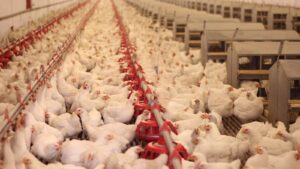
Poland’s Ministry of Agriculture and Rural Development said the competent Ukrainian service on Friday adopted a decision on the regionalization of Newcastle disease and lifted in this regard a complete ban on imports of Polish poultry products.
“The ban on imports of hatching eggs, live poultry and untreated poultry products and raw materials has been lifted, with the exception of areas affected by Newcastle disease virus, determined by the competent authority of the Republic of Poland,” the website of the Polish agency said.
According to the report, the restrictions do not apply to products that have undergone treatment that guarantees the destruction of the virus, in accordance with the requirements for the importation into the customs territory of Ukraine of live animals and their reproductive material, food products of animal origin, feed, hay, straw, as well as by-products of animal origin and derivative products, approved by the order of the Ministry of Agrarian Policy of Ukraine № 553 of November 16, 2018.
At the same time, the agency “Interfax-Ukraine” has not yet managed to find on the official websites of the Ukrainian Ministry, as well as the State Service of Ukraine for Food Safety and Consumer Protection relevant information on the lifting of the ban on imports of Polish poultry products to Ukraine.
As reported, on July 13, by the order of the Chief State Veterinary Inspector, a restriction was imposed on the import of hatching eggs, poultry and poultry products from Poland to Ukraine due to the registration of Newcastle disease in the country.
According to Polish mass media reports, the disease was detected for the first time in 50 years at a poultry farm in Bialystok district, where 43.41 thousand chickens are kept for slaughter. The Polish authorities have repeatedly asked the Ministry of Agrarian Policy to allow the export of these products to Ukraine, leaving the ban on supplies only for the regions where the disease was detected.
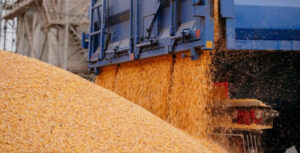
Transit of Ukrainian grain through Poland is steadily growing: if in February it was 114 thousand tons, in June it exceeded 260 thousand tons, Polish Minister of Agriculture and Rural Development Robert Telusz said after online talks on Wednesday with Ukrainian Minister of Agrarian Policy Mykola Solskiy.
“This is very good news for agrarians, because grain from Ukraine does not enter the Polish market,” the Polish minister was quoted as saying in a tweet and on the ministry’s website.
At the same time, he said he saw a chance for the European Commission to extend the decision to ban Ukrainian grain exports to Poland after September 15, blaming both those in power in the EU and the Polish opposition for trying to destabilize Poland.
“It is in our interest to protect the Polish farmer. That is why a clear statement was made by Prime Minister Morawiecki that Ukrainian grain will not enter Poland after September 15,” Telusz reiterated.
According to him, the Polish side wants the so-called “solidarity corridors” to work effectively, which would allow for efficient transportation of Ukrainian goods without harming the Polish agricultural sector.
A press release from the Polish ministry indicates that to this end Telusz proposed measures to facilitate the transit of Ukrainian grain to seaports in various EU countries, in which Solsky was interested, but no other details are available and the Ukrainian ministry has not officially commented on the talks.
The Polish Ministry of Agriculture said that the Ukrainian side will also present a draft of detailed solutions in the near future. “He (Solsky – IF-U) explained that Russian missile strikes on Ukraine’s port infrastructure have put Ukrainian exporters in a very difficult situation. Now they will have to organize grain exports via other routes,” the release said.
Telush informed about ongoing negotiations with Lithuania and Latvia on the use of their ports for grain exports from Ukraine. “These negotiations are going in the right direction,” the minister added.
According to him, Poland has managed to significantly increase grain exports through its four main ports this year. In particular, if in January it amounted to 299 thousand tons, in February – 539 thousand tons, in March – 628 thousand tons, in April – 704 thousand tons, in May – 882 thousand tons, and in June – almost 940 thousand tons.
Poland exported more than 4.5 million tons of crops in 4 months of this year, stated Telusz.
It is noted that the ministers also raised the issue of access of Polish poultry products and eggs to the Ukrainian market, and currently the veterinary services of both countries are working intensively to resolve this issue.
The Polish Ministry of Agriculture pointed out that Ukraine is an important partner of Poland in agri-food trade. In 2022, an increase in agricultural exports to the Ukrainian market by 16% to $945.3 million was recorded. The main export items were: cheese and cottage cheese, products used for animal feed, and coffee. In April 2023, exports of agricultural products to the Ukrainian market increased by more than 35% compared to the same period in 2022, the release added.